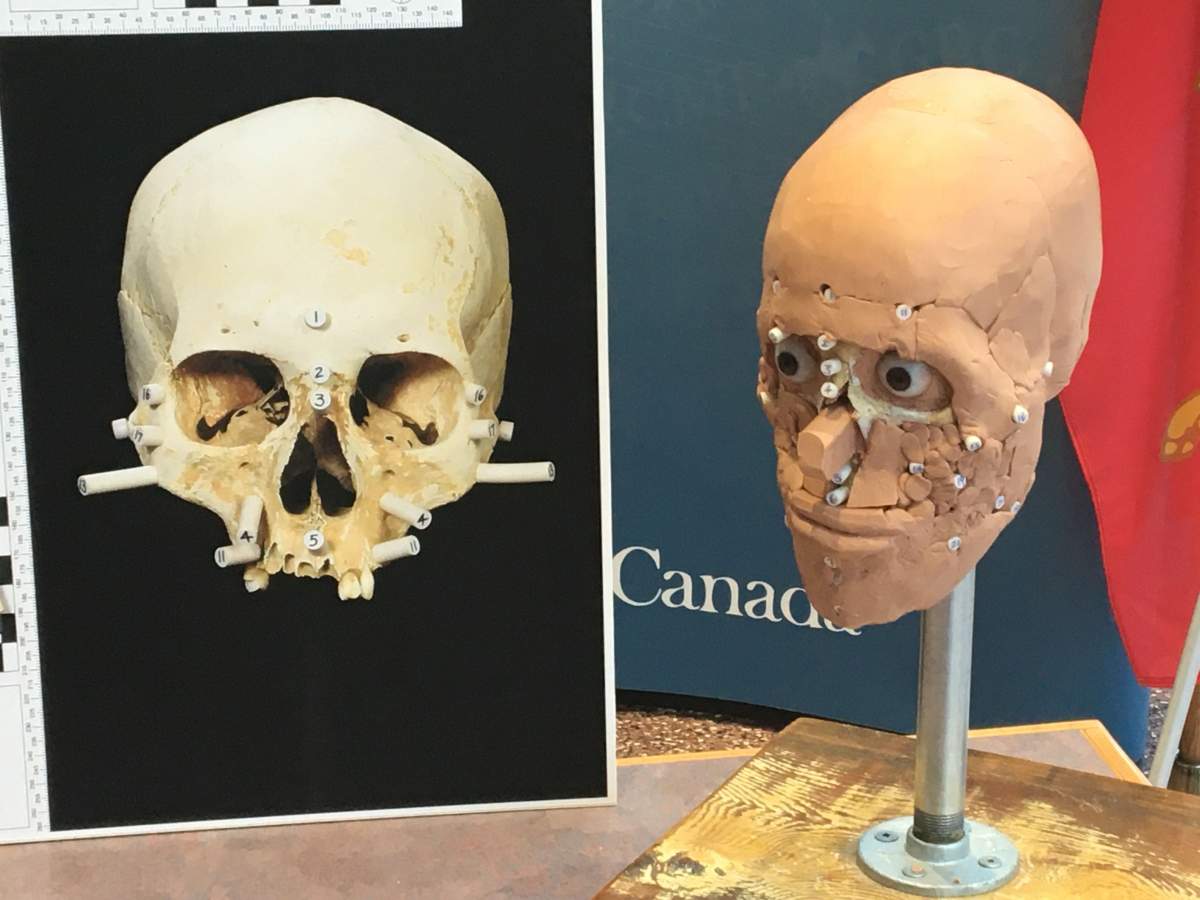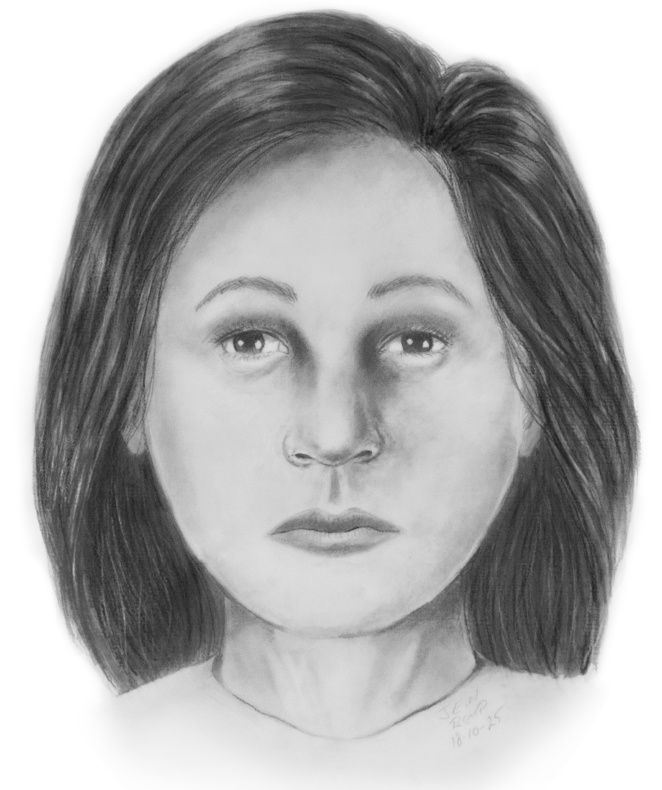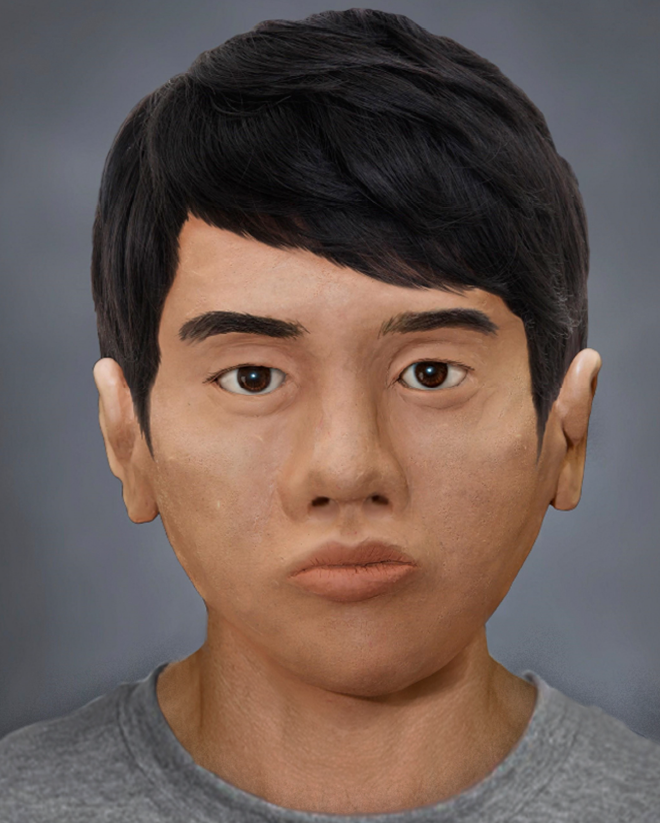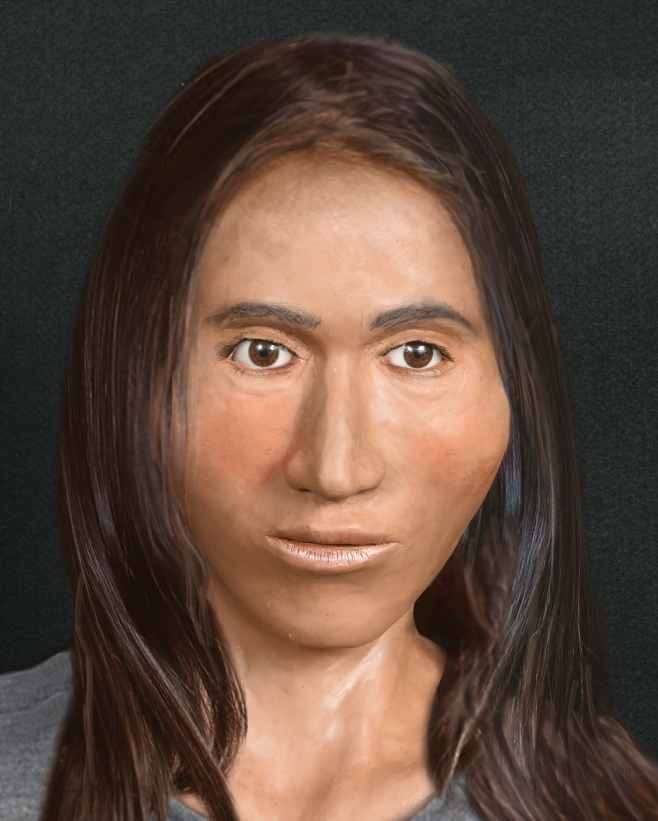Alberta RCMP have released composite images and reconstructions of what a trio of unidentified victims found over the past 40 years in the province may have looked like.

Staff Sgt. Jason Zazula said the RCMP made the choice to use the tool in the hopes that it triggered something for someone with a missing relative or friend.
“The reconstructions and the photos, we believe, will be a close approximation of what they looked like in life, and it will [hopefully] trigger someone’s memory.”
The process of putting a reconstruction together is lengthy and involved the RCMP working with anthropologists at the University of Alberta to gather forensic information about how the person may have lived.
Remains are first examined by Pamela Mayne Correia, a forensic anthropologist with the U of A. She examines bones for signs of the person’s age, sex, ancestry– and whether they may have had any injuries in life that may help identify them.
The three people RCMP are hoping to identify were excellent candidates for reconstruction, Mayne Correia said.
“They’re very straightforward skeletal remains,” she said.
After gathering information about the history of the person, the job is passed onto Cpl. Jean Nault from the RCMP Behavioural Science Group. He begins with a replica of the person’s skull, if it can be recreated.
“We have tissue depth markers of different ancestries, and those are then attached to the skull at specific points, and based on that, then the clay up to the level is added to the skull,” he explained.
“Somebody who is 20 will look a lot different than someone who is 50.”
RCMP said that anyone with missing family members should reach out to police, because they also use collected DNA from Canada’s National DNA Data Bank to attempt to identify victims.
In Alberta, there are currently 421 long-term missing persons cases and 49 cases of unidentified remains. RCMP said cases are not closed until they are solved.

Get daily National news
The three unidentified victims RCMP are now hoping to identify are below:
Unidentified woman found in 1985 near Hinton, Alta.
The first victim is a woman investigators believe was last seen alive in 1975. She is estimated to be between 16-30 years of age, with possible First Nations ancestry. Her remains were found near Hinton, Alta., in 1985. Anyone with information about this woman should contact Hinton RCMP at 780-865-2455.
Unidentified male found in Kananaskis Country, Alta. in 2013
The second reconstruction is of a man between the ages of 25-40, who was found in 2013 at the Peter Lougheed Provincial Park in Kananaskis Country, Alta. Examiners believe he was last seen alive between 2008-2013. He between five-foot-three and five-foot-seven, and was of possible Asian ancestry.
He had strong muscle development in his arm and leg bones, which police said may indicate he performed a repetitive motion, like canoeing. Forensic examination also revealed he may have suffered malnutrition or anemia. Anyone with information on the man should call Kananaskis RCMP at 403-591-7707.
Unidentified woman found near Carbon, Alta. in 1995
The third person RCMP hope to identify is a woman who was found in 1995 near Carbon, Alta, believed to have been between the ages of 23-40 at the time of death. She was between five feet and five-foot-three, had multiple dental fillings and may have had children. Forensic signs also show she suffered from repetitive fevers.
Anyone with information on this woman should contact Drumheller RCMP at 403-823-7590.











Comments
Comments closed.
Due to the sensitive and/or legal subject matter of some of the content on globalnews.ca, we reserve the ability to disable comments from time to time.
Please see our Commenting Policy for more.